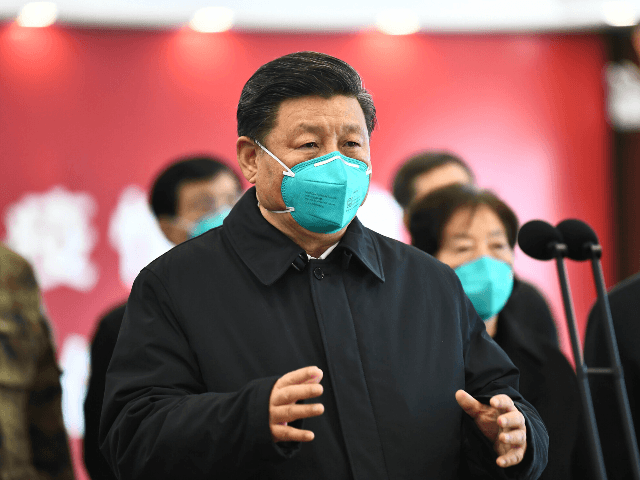China’s effort to promote its coronavirus vaccines is not quite an “all hands on deck” effort, because one set of hands is notably missing: dictator Xi Jinping, who has evidently not been vaccinated himself and is putting very little personal effort into convincing his skeptical subjects to trust Chinese vaccine products.
India’s News18 noted in late January that Xi was conspicuously absent from the roster of China-friendly world leaders who have been publicly inoculated with the two Chinese coronavirus vaccines produced in China.
Asked if Xi, Premier Li Keqiang, or other top Chinese officials have been vaccinated, Chinese Foreign Ministry spokeswoman Hua Chunying evasively replied, “I have no answer at this moment. Vaccine is our silver bullet for epidemic prevention and for our ultimate victory against the virus.”
In contrast, Indian Prime Minister Narendra Modi rushed to have himself inoculated on camera last week after India’s Bharat Biotech began manufacturing Covaxin, India’s domestically developed coronavirus vaccine. Modi apparently found it necessary to show his personal support to shore up public confidence amid complaints that Covaxin was rushed to the market without adequate testing.
One of the most vocally enthusiastic proponents of China’s vaccines, Philippine President Rodrigo Duterte, gushed with praise and thanks for the first shipment of Sinovac’s “Coronavac” product from China, vowing last Sunday that he would visit Beijing to “shake hands with Xi Jinping and personally thank him for the donation,” but also admitted that he personally would not be taking the Sinovac shot because his doctor recommended against it.
The erratic Phillipine leader claims he plans to use a different Chinese vaccine, while his constituents are deeply skeptical of the Chinese products and Duterte’s motivations for buying them, and not terribly confident in vaccines in general. A similar situation exists in Pakistan, whose citizens say they do not trust the vaccines their government procured with much fanfare from Beijing.
Xi has spoken favorably of Chinese vaccines in general terms as a “global public good” but has not participated in the Chinese Communist Party’s (CCP) frantic effort to promote its questionable vaccine products, or in the even more frantic effort to smear more effective vaccines developed in the U.S. and UK with a propaganda blitz.
The CCP is generally more interested in talking about vaccines than answering tough questions about them, but Xi – arguably the world leader with the least reason to worry about anyone asking him a tough question during public appearances – is not a big player in China’s public relations campaign.
Xi’s participation mostly involves meeting with foreign leaders and persuading them to buy China’s vaccines if they cannot get enough of the medicines from AstraZeneca or Pfizer, as he is currently doing with Polish President Andrzej Duda. His effort to push “vaccine cooperation” on Central and Eastern European nations received a “cold reception” in the opinion of observers quoted by Voice of America News (VOA) in February, although some of those nations are nevertheless buying shots from China.
Xi’s reluctance to demonstrate personal enthusiasm for Chinese vaccines is interesting because Chinese citizens are almost as skeptical as Filipinos. In some surveys, only a quarter of the Chinese public expressed willingness to receive Sinovac or Sinpharm vaccines, and approval was especially low among highly educated people and medical workers.
Sinovac’s “Coronavac” product is considered the least effective at combatting infections of the major products in global distribution today, testing at 50.38 percent effectiveness. Chinese state media has described it as “good enough” and insisted that its true value is in preventing hospitalizations from severe coronavirus cases.
Analysts attributed some of this reluctance to the sense among Chinese that they have already contained the Wuhan coronavirus, so vaccination is unnecessary – but public health experts also said the characteristic lack of “openness and transparency” from China’s vaccine programs is eroding public trust, already running low after years of massive Chinese pharmaceutical scandals.
Xi might be keeping some distance from individual Chinese vaccine products to maintain some deniability if problems develop with the poorly-tested, secretive medicines, or because he is reluctant to damage China’s “conquest of the coronavirus” narrative by suggesting Chinese citizens should rush to get inoculated against a disease their government supposedly vanquished. Whatever the reasons, it is notable that Xi’s regional rival Narendra Modi, whose country came to the brink of war with China as the Wuhan coronavirus was ravaging the world, received a public injection before Xi Jinping did.

COMMENTS
Please let us know if you're having issues with commenting.